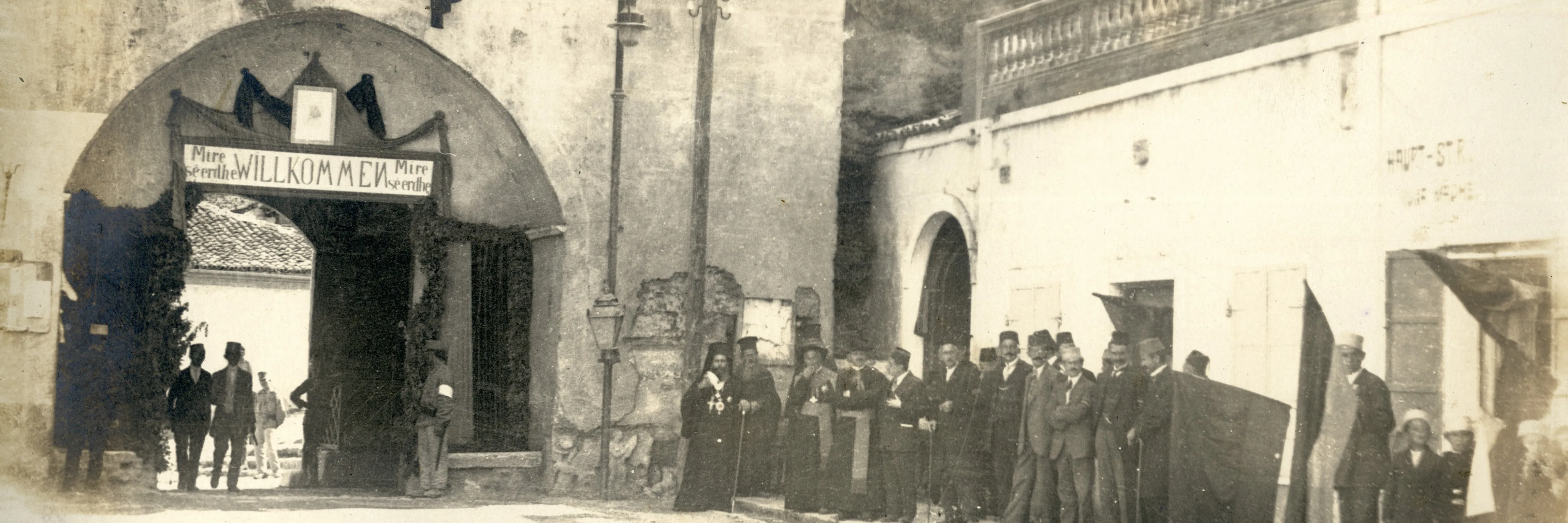Humanitarian Intervention and State-building from Abroad
The phenomena of humanitarian intervention and state-building came rarely into direct contact in the 19th century. On the one hand, humanitarian intervention was legitimated basically by general public, since the legitimacy of state-building carried out by international actors relied on a joint decision of the great powers. On the other hand, state-building from humanitarian reason occurred only under special political conditions: at the juncture as the great powers took measures to prevent the direct war breakout among them. In this case, the delegates of all great powers set up an international commission (of control) that draw a territory under joint protectorate of all great powers on which the clash between the interests of more great powers seemed inevitable to escalate.
International Control Commissions
The international control commissions, as important tools of international peace-making, were first set up by the great powers in Syria (1860), Eastern Rumelia (1879) and Macedonia (1903–1908). With the commission activities the great powers interfere directly with the internal affairs of the Ottoman Empire to reorganize the local administration, armed forces and legal practice. Intervention was a direct consequence of a (civil) war in these three cases, and the reforms were carried out after European patterns.
The International Control Commission of Albania constituted a turning point in the evolution of the international control commissions, because a new, independent state had to be built up. In Syria (1860–1861) and in Macedonia (1903–1908) the great powers formally reorganized the vilayets of the Ottoman Empire; that is, state-building did not change the international legal status of these provinces. In Eastern Rumelia (1879–1885) a semi-autonomous state was established, where the sovereignty of the sultan turned into suzerainty.
Only between 1913 and 1990 alone, 17 international control commissions were set up: four ’international military control commissions’; two international control commissions for special targets; and eleven international control commissions for state-building. It is remarkable that the comparative approach of this type of commission has escaped the attention of scholars. Experts of political and historical sciences have carried out extensive research on the history or activity of certain commissions, but there was no real attempt to make this commission type a subject of discussion, or to set up a typology of them, or to describe them from a comparative perspective.
Overview of the Action
Although the state-building ambition in Albania, which took place after the total collapse of the Ottoman Empire, was the most important humanitarian project of the great powers on the eve of First World War, this case has escaped the attention of international humanitarian intervention research: For unknown reasons, the Albanian case was not regarded as humanitarian state-building by contemporary international law experts (Heraclides, Alexis: Humanitarian Intervention in International Law 1830–1939. The Debate. Journal of the history of International Law 16 (2014): 26–62, 58–62).
To our way of thinking, the current humanitarian intervention research need particular provisions for methodological reasons. Humanitarian intervention research has tended to focus exclusively on the investigation of the transatlantic-centric international community without changing perspective, questions and approaches in the last two decades. The activity and policy of the international community is basically interpreted from itself, as if it would not be interacting with the ‘outside world’. What is more, political scientists tend to reproduce old narratives and marry them with new ideas and they turn blind eye to the humanitarian events prior to 1990 or such former humanitarian interventionists as Austria-Hungary was in its time.
Aims of the project
This basic research project will analyze the process through which the Albanian case became an international problem with humanitarian character for the great powers and for Austria-Hungary. On the other hand, the project will place the 1913–1914 history of post-Ottoman Albania in the context of state-building interventions in the Balkans and general research on humanitarian intervention. The aim is to further broaden the humanitarian intervention discussion and to make continuities and discontinuities of post-war state-building processes from humanitarian reason visible. Thirdly, since there is a considerable corpus of unexploited historical experience of this type of commission, the aim of this project is to articulate historical lessons about state-building for humanitarian reasons from abroad through an in-depth analysis of a specific case study, and to make this experience directly accessible for international diplomacy with the help of a participating a diplomat project-researcher.
The Albanian State-building as a Humanitarian Intervention (1912-1914)
The comparative assessment of the international control commissions, including the Albanian one, shall be conducted in accordance with the criteria as set out below. What were the instructions and principles according to which the commission took up its responsibilities? How was the commission legitimized? How did the commission work as an authority? Who controlled, instructed and supervised the commission (international organizations or the founding countries)? What role did the commission play in the state-building process? Did local agencies participate in the state-building process or not? What are the basic attitudes of the commissioners to local population and centers of power? What are the main criteria according to which the commission’s activity can be considered as ‘successful’?
Humanitarian Intervention, State-building from Abroad, International Commissions after 1990
In the period after 1990 nationalism, political authoritarianism and religious fundamentalism created political instability. As a consequence, we saw a huge plethora of humanitarian interventions in the Balkans and in the Middle-East. Undoubtedly, the two most complex ones have been in Bosnia-Herzegovina and in Kosovo. The state-building element of these interventions aimed to create functional democratic institutions. In spite of vast resources spent and some clear success achieved, lots of criticism has been formulated against the practice of UNMIK, ICO and OHR respectively. At a certain point, international consensus evaporated behind these state-building efforts. What went wrong? Why did Russia break up with the EU and NATO countries in these peace-building efforts? Do we have democracy and functional institutions in Bosnia and Herzegovina and Kosovo? Is it feasible to build a modern nation-state in the 21st century on war-torn multi-ethnic ground?




